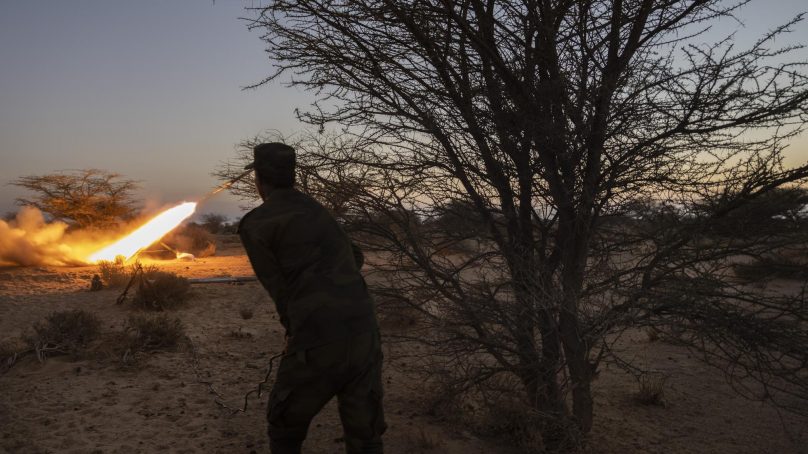
Western Sahara liberation movement, the Polisario Front’s hopes for independence suffered a major blow last year when the US in the waning days of the Trump administration backed Morocco’s claim to the territory, as part of efforts to get Morocco to recognise Israel.
Other countries, including the Polisario’s main ally Algeria, recognise Western Sahara as independent, while still more support UN efforts for a negotiated solution.
The rising tensions have gotten the attention of the UN, whose Minurso force oversaw the ceasefire and whose secretary-general recently appointed Staffan de Mistura, a seasoned Italian diplomat and former UN envoy for Syria, to take charge of the negotiations.
The Polisario’s leader, Brahim Ghali, last week warned that de Mistura must be given a clear mandate from the Security Council to carry out a referendum. Western Sahara will be before the Council on October 28, when members vote on whether to extend the Minurso mission.
Achieving progress is also a matter of legitimacy for the Polisario. After years of internal division, the new hostilities have rallied pro-independence supporters around its leadership, but many fear that the lack of results could lead to more radicalization.
In the camps, the live fire from the front line reverberates strongly among refugees, who were forced to confront the precariousness of their existence when the humanitarian aid they rely on slowed to a trickle during the pandemic.
Medical missions were halted, medicine was in short supply and prices of camel, goat and chicken meat all went up, said 29-year-old Dahaba Chej Baha, a refugee in the Boujdour camp. On a recent morning, the mother of a 3-year-old was sheltering in the shade while in her third hour of waiting for an Algerian truck to deliver gas canisters.
“Everything is so difficult here,” Chej Baha said, adding that those who would typically find ways to work overseas and send money back have become trapped because of pandemic-related travel restrictions. “I don’t like war, but I feel that nothing is going to change without it.”
Meima Ali, another mother, with three kids, said she was against the war, but that her voice was not listened to in a community dominated by men.
“My husband has to decide between finding work or looking like a traitor for not going to the front,” she said. “How am I going to survive without him? Here, we live as if we were dead.”
Morocco denies that there is an armed conflict raging in what it calls its “southern provinces,” where about 90,000 Sahrawi people are estimated to live alongside 350,000 Moroccans. Morocco has told the UN mission that its troops only return fire “in cases of direct threat” and “always in proportion to actions” of the Polisario.
In a response to questions from The Associated Press, the Moroccan government said that there have been “unilateral attacks” by the Polisario but no casualties on the Moroccan side.
It called any effort to portray the conflict as something bigger “propaganda elements intended for the media” and “desperate gesticulations to attract attention.”
Intissar Fakir, an expert on the region for the Washington-based Middle East Institute, said that a full-fledged conflict, which could pit Morocco and Algeria against each other, wasn’t in anyone’s interest. But she said that negotiating a lasting solution wouldn’t be easy either.
“Maybe in terms of international law, the Polisario have their standing, but I think Morocco here is the strongest it has ever been with the US recognition and de facto control over most of the territory,” she said. But the Polisario, she added, “is more entrenched in their own position because they really have kind of nothing to lose at this point.”
Although many people interviewed at the camps or on the frontline expressed frustration with the years of negotiations that the Polisario defended until last year, open criticism is hard to come by in such a tight community.
Baali Hamudi Nayim, a veteran of the 1970s and 1980s war against Mauritania and Morocco, said he had been against the 1991 ceasefire.
“If it was up to me, the time for a political solution without any guarantees, through the UN or others, is over,” said Hamudi, who is back in his guerrilla attire to oversee battalions in the restive Mahbas. “For me, the solution is a military one.”
- An AP report











